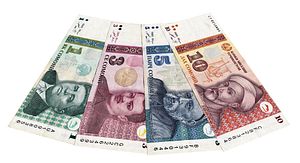Tajikistan’s anti-corruption agency is reportedly looking into the business dealings of former deputy defense minister-turned mutinous general Abdulhalim Nazarzoda and the exiled leader of the IRPT, Muhiddin Kabiri. Asia-Plus reported Tuesday that a representative from the agency said that “The anti-corruption agency is currently inspecting twelve entities that were privatized by Abduhalim Nazarzoda and his relatives” in addition to more than 40 buildings tied to Kabiri.
Nazarzoda was killed last September after a very short-lived mutiny, the details of which remain opaque. The Tajik government says Nazarzoda was in cahoots with the IRPT and was intent on bringing down the state. An alternate theory casts Nazarzoda as a scapegoat who got away—briefly that is. Muhiddin Kabiri left Tajikistan ahead of the March elections after accusations surfaced that the government was investigating him for illegal privatization.
Having read the writing on the wall, Kabiri left and has remained free while his party first lost its parliament seats, then was forced to close, and ultimately labeled a terrorist organization by the state (a designation no other state has bothered to echo). In an interview last July, Kabiri addressed the allegations, which had been made in a state-owned paper, saying that “laws, unfortunately, are applied selectively in our country.” He said that one of the buildings which he is accused of privatizing illegally he had bought in a government auction in 1999 and then transferred ownership to other party members:
All this took place in 1999, mind you. I knew nothing more of this building ever since then. For some reason, 17 years later, someone decided to bring this case up again. If someone has misused that land, then that person should be held accountable. But laws, unfortunately, are applied selectively in our country. The same situation unfolded around a marketplace I owned in the town of Tursunzade.
Kabiri’s case brings to mind that of Zayd Saidov, a Tajik businessman-turned-politician who was convicted in 2013 of fraud and polygamy, charges supporters say were politically motivated. Tajikistan has a habit of digging up old (or fabricated) crimes for the politically inconvenient—recall the arrest of an IRPT member sitting on the Central Elections Commission a month before the election. Jamoliddin Mahmoudov was arrested for a giving another IRPT member two pistols in 1996.
In Transparency International’s recent Corruption Perceptions Index Tajikistan ranked at 136 out of 167. Granted, the score was a slight improvement over the previous year’s ranking, but that’s not saying much. Tajikistan is Central Asia’s poorest state and the regional economic crisis isn’t helping matters. Fighting corruption should be a main push for the government, but the rot starts at the top.
In March, President Rahmon Emomali appointed his son Rustam, 27 at the time, to head the anticorruption agency.

































